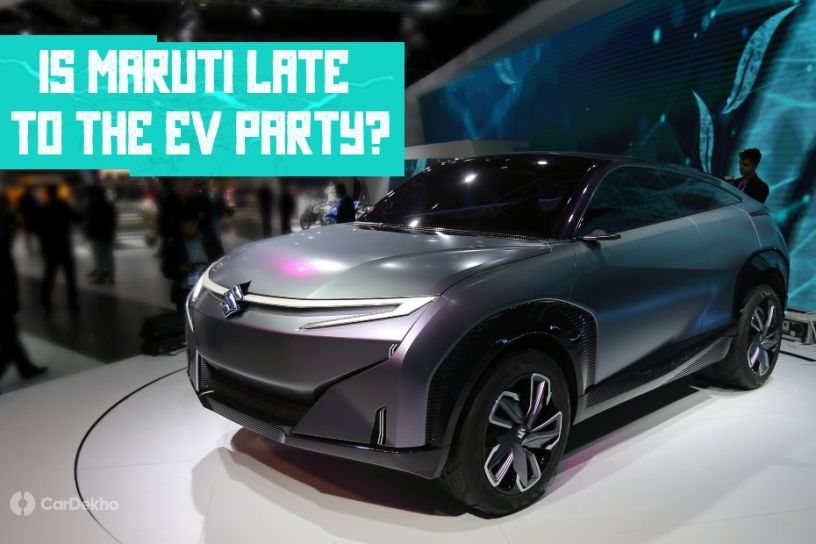Maruti Suzuki Seems To Be Late To The EV Party
Modified On Jul 22, 2021 10:38 AM By Sonny
- Write a comment
India’s EV space will see the introduction of several new models before the country’s largest carmaker enters the fray
-
Tata and Mahindra to launch numerous mass-market EVs before Maruti launches its first.
-
The Nexon EV is already the best-selling EV in India thanks to its relatively affordable pricing and decent range.
-
Mahindra is expected to launch an electric version of the KUV100, XUV300, and XUV700 by 2023.
-
Tata announced its plans to launch 10 new EVs, likely to include electric versions of the Altroz and HBX, by 2025.
-
Maruti’s first EV could be based on the Wagon R with a starting price of around Rs 10 lakh.

It was recently reported that Suzuki will launch its first all-electric vehicle, likely the electric version of the Maruti Wagon R, in India by 2025. This means Maruti would be entering the EV segment in India quite late, while most of its mass-market rivals will already have a range of EVs on sale between 2021 and 2025.
Hyundai, Tata, Mahindra, and MG have already established their presence. Tata’s Nexon EV has become the best selling electric car here as an affordable sub-4m SUV offering starting at just Rs 13.99 lakh (ex-showroom) with a claimed range of just over 300km. Meanwhile, Hyundai and MG took the premium route with the Kona Electric and ZS EV respectively, which are global electric compact SUV offerings.

Mahindra is also set to introduce multiple electric cars before Maruti’s first EV. That includes electric versions of the KUV100, XUV300, and XUV700 as well as all-new electric-only models from 2025. Tata has also confirmed its plans to launch a total of 10 new EVs by 2025. It could include electric versions of the Altroz, Tiago, and the upcoming HBX micro-SUV.
Other EVs likely to arrive ahead of Maruti’s first EV include the likes of the Tesla Model 3, a compact EV from Renault, a Nexon EV-rival from MG, and premium offerings from Hyundai as well as Kia.

Maruti has been testing an electric version of the Wagon R in India since 2018 but it wasn’t long before the carmaker came to the conclusion that the market wasn’t ready for a mass-market EV just yet. Hurdles such as lack of charging infrastructure, high cost of battery manufacturing, and insufficient government support for mass-market EVs continue to place a burden on carmakers and early adopters.
Since Maruti as a brand is heavily focused on economies of scale, it seems like it’s taking the same approach to enter the EV space and ensure a sustainable and profitable transition. Meanwhile, Suzuki is setting up a battery plant in India, in partnership with Toshiba and Denso, that would make batteries a lot less expensive than importing them. The electric charging infrastructure is also expected to expand substantially between now and 2025.

Maruti may well be late to the EV party by a few years, but it will likely be poised for mass-market dominance with accessible pricing and vast support network. On the other hand, early movers such as Tata and Mahindra could get an advantage over Maruti in select EV segments with an established customer base and popular models.
1 out of 1 found this helpful















